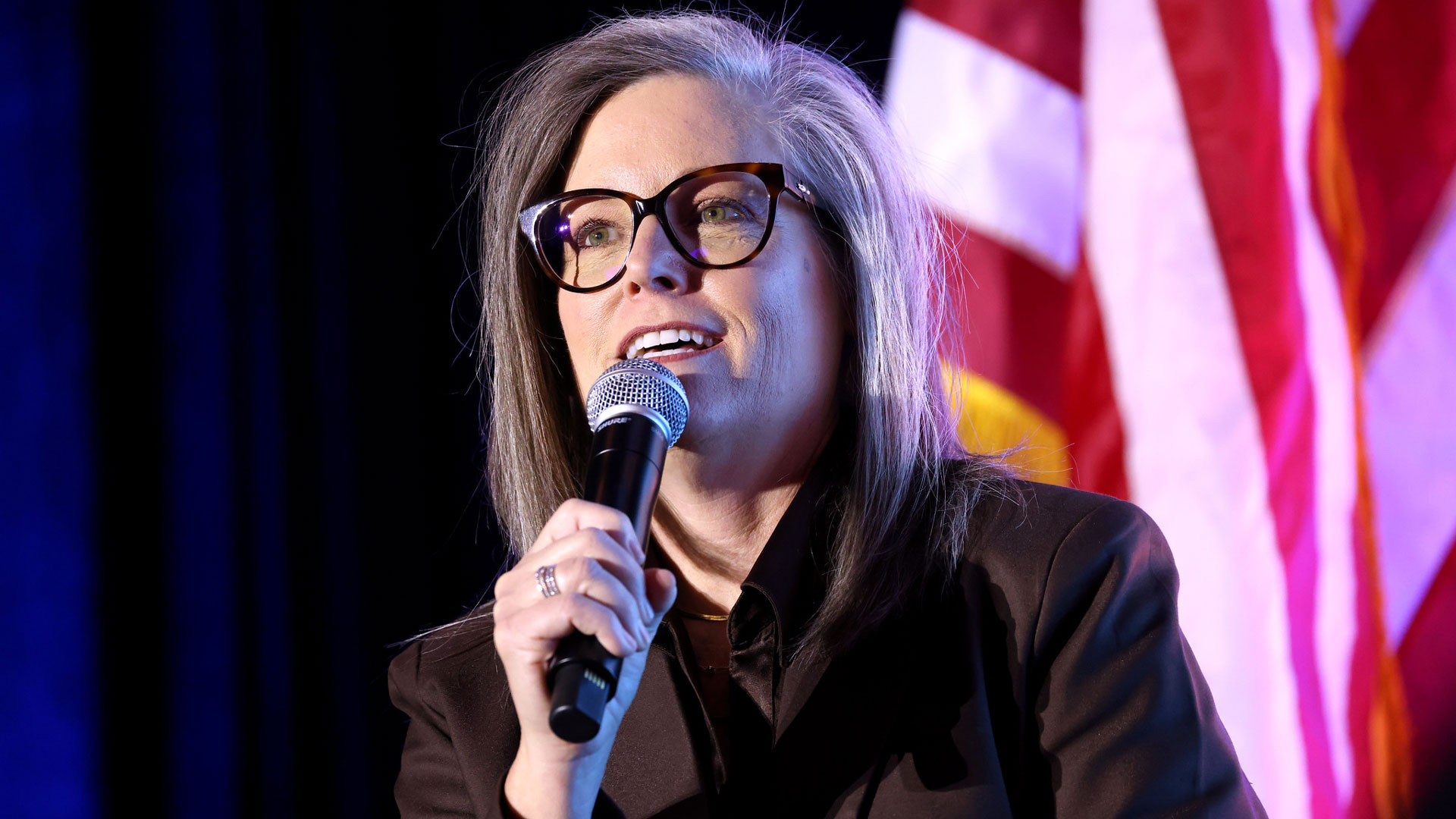 Governor Katie Hobbs speaking with attendees at the 2025 Legislative Forecast Luncheon hosted by the Arizona Chamber of Commerce & Industry at the Phoenix Convention Center in Phoenix, Arizona. January 10, 2025
Governor Katie Hobbs speaking with attendees at the 2025 Legislative Forecast Luncheon hosted by the Arizona Chamber of Commerce & Industry at the Phoenix Convention Center in Phoenix, Arizona. January 10, 2025
Governor Katie Hobbs is slamming Republicans over a new spending proposal that would shift money away from key programs to cover a budget shortfall for the Division of Developmental Disabilities.
The division needs $122 million to maintain Medicaid services through the end of this fiscal year. Without it, support for more than 59,000 Arizonans with developmental disabilities like cerebral palsy, autism, and down syndrome is at risk.
“This crisis didn’t happen overnight,” Republican House Speaker Steve Montenegro said. Montenegro accused Hobbs of financial mismanagement, arguing that her administration expanded DDD programs without legislative approval.
“What we’re doing today is stepping up with a responsible, fully funded solution that protects families, restores order, and keeps this from happening again.”
What started as a temporary program in 2020 under former Republican Gov. Doug Ducey, the Paid Caregiver Program–a service provided through the DDD–was meant to mitigate the caregiver shortage that was made worse by the COVID-19 pandemic. That program became permanent after the Hobbs administration received federal approval last year. But starting on April 1, federal funding stopped fully paying for the service, leaving the state to pick up nearly a third of the cost.
A Republican-backed bill would reallocate funding to close funding gaps. The shifting includes $75 million away from the prescription drug rebate fund, $38 million from the housing trust fund, and $10 million from the Arizona Commerce Authority's Competes Fund.
“We’re bringing compassion and common sense back into the process. Families deserve stability–not budget chaos and political excuses,” he said.
But Hobbs says the proposal opens the door to ending the Paid Caregiver Program, which allows family members to receive compensation for providing “extraordinary” long-term care that may be beyond typical parental responsibilities.
“This proposal comes from unserious lawmakers, but it will have serious consequences for everyday people,” Hobbs said. “Today, they are threatening to gut services for disabled Arizonans. Tomorrow, I have no doubt they will slash health care for middle-class children, people with serious mental illnesses, and other populations. I won’t let them do that.”
The spending bill proposes a cap on paid hours at 40 starting in July, and then it would cut those hours in half to 20 a week, starting in October. Parents could still seek additional assistance from non-parent Direct Care Workers. While it would maintain the program, a legislative reauthorization would be required by the time the current waiver expires in September 2027.
If approved, the bill would require legislative approval for any Medicaid waiver requests before they’re sent to the federal government. It would also require state agencies to report how they plan to use federal funds—including when that funding is expected to run out.

By submitting your comments, you hereby give AZPM the right to post your comments and potentially use them in any other form of media operated by this institution.